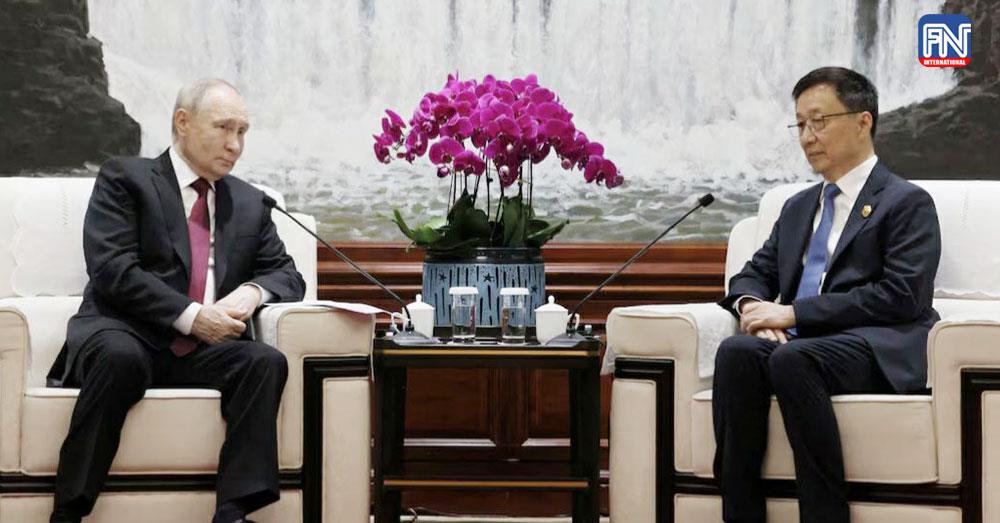MOSCOW, Jun. 20 (Reuters) - Russia-China trade options have narrowed since the U.S. imposed sanctions last week on the only Russian bank branch in China, but President Vladimir Putin's Chinese visit last month has helped ensure the two countries have payment alternatives for now, three sources said.
Since Putin's visit, specially authorised banks have been set up in border regions which allow Russian firms to open non-resident accounts (NRA) with Chinese banks, a step that has become more important since VTB's (VTBR.MM) Shanghai branch was targeted with sanctions, they told Reuters.
Trade between Russia and China ballooned to a record $240 billion in 2023. Maintaining the flow of income and goods, which is crucial to the Kremlin, depends on ensuring smooth payments.
The workaround, which involves smaller, regional banks that can for the time being fly below the U.S. sanctions radar, shows how Moscow and Beijing are having to take increasingly complex steps to ensure bilateral payments continue to be made but at the same time potentially exposing some Chinese financial firms to U.S. sanctions as they look to circumvent restrictions.
Using banks in border regions makes it easier for go-betweens working on behalf of Russian companies to flit between them. The scheme, involving small banks with limited or no business with countries which Russia considers unfriendly, also reduces the potential fallout for China.
However, the window for them to carry out payments for Russian companies may be narrowing. A senior U.S. Treasury official said this month it is working to identify smaller banks with weaker compliance departments that are still helping to process transactions that aid Russia's military output.
Trade with Beijing has become more important to Moscow since it sent its army into Ukraine in February 2022. Russian banks were subsequently blocked from the SWIFT global payments system, while many Western countries and companies severed ties with Russia.
"After (Putin's) visit, banks have appeared in one of China's provinces that are opening NRA accounts for Russian companies on Chinese territory," said one banking source, who declined to disclose names due to sanctions risks.
Only a handful of banks, located near the border in the northeast, still work with Russia, a second banking source said.
"We are not even talking about ... large and medium-sized banks today," the person said. "None of them work with Russia. This is the problem that we must really recognise."
The People's Bank of China and China's banking regulator, the National Financial Regulatory Administration, did not respond to requests for comment.
After more Chinese firms were sanctioned by the U.S., many may have decided to stop any business with Russia and imports from China could drop, said Yevgeny Kogan, investment banker and professor at Russia's Higher School of Economics.
Sanctions on Russian bank subsidiaries in China also create issues, he added.

Photo from Reuters




